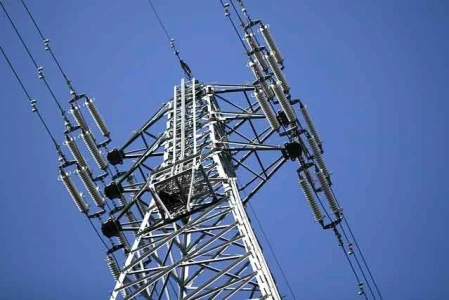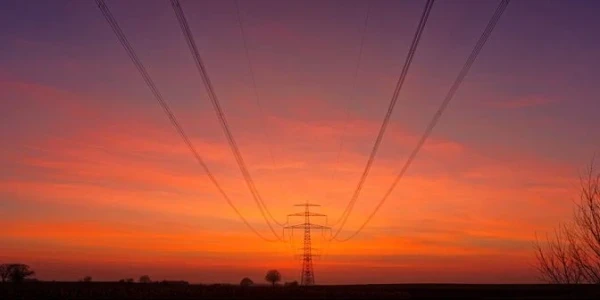North Carolina Town Sues Duke Energy for Climate Fraud

A small town in North Carolina has filed a lawsuit against Duke Energy, one of the largest utility companies in the United States, alleging that the company has been deceptive in its efforts to downplay the environmental impact of its operations. The lawsuit, filed by the town of Smithfield, claims that Duke Energy misled the public and investors about its role in contributing to climate change and has failed to take meaningful steps to reduce greenhouse gas emissions. This legal action highlights growing tensions between utility companies and local governments as concerns over climate change intensify.
The Allegations Against Duke Energy
Smithfield’s lawsuit centers around accusations that Duke Energy, despite being one of the nation's largest carbon emitters, has misrepresented its commitment to fighting climate change. The town claims that the utility has provided false or misleading statements regarding its environmental impact and the future sustainability of its energy generation practices. Specifically, the town alleges that Duke Energy has failed to take adequate steps to transition to renewable energy sources, such as wind and solar, and has continued to rely heavily on fossil fuels, particularly coal and natural gas.
The town’s legal team argues that Duke Energy’s failure to curb its emissions or properly disclose the risks associated with its fossil fuel dependency constitutes both deception and negligence. Smithfield is seeking damages for the alleged harm caused by Duke Energy’s failure to take action on climate change and its failure to adequately communicate the true environmental risks associated with its operations.
The Context of the Lawsuit
The lawsuit comes at a time when the effects of climate change are becoming increasingly apparent, with rising sea levels, extreme weather events, and heatwaves affecting communities across the globe. In North Carolina, the impact of these changes has been particularly severe, with coastal flooding, hurricanes, and extreme temperatures creating significant challenges for local governments and residents. As a result, local officials are pushing for more aggressive action on climate change and holding corporations accountable for their environmental impact.
Duke Energy, which provides electricity to around 7.7 million customers across six states, has been a target of increasing scrutiny from environmental groups, investors, and policymakers. While the company has made some efforts to diversify its energy sources and reduce emissions, critics argue that these changes have been slow and insufficient given the urgency of the climate crisis.
In 2020, Duke Energy pledged to reach net-zero carbon emissions by 2050, but many environmental groups have criticized the company for not setting more ambitious near-term targets. The lawsuit from Smithfield argues that Duke’s claims of progress toward clean energy are misleading and that the company continues to prioritize profits over environmental sustainability.
Legal and Political Implications
The case is expected to have significant legal and political implications, as it could set a precedent for how utility companies are held accountable for their role in climate change. Smithfield’s lawsuit is part of a broader trend of legal action against large corporations and fossil fuel companies, as governments and citizens increasingly seek redress for the impacts of global warming. In recent years, several cities and states have filed lawsuits against oil companies, alleging that they downplayed the risks of climate change and misled the public about the dangers of fossil fuel consumption.
If the lawsuit against Duke Energy is successful, it could open the door for other local governments to pursue similar actions against utility companies, particularly those with a heavy reliance on fossil fuels. The outcome of this case may also influence future regulatory decisions and public policy regarding energy production, climate action, and corporate responsibility.
Duke Energy’s Response
Duke Energy has denied the allegations, arguing that it is actively working to transition to a cleaner energy future. The company points to its investments in renewable energy, energy efficiency programs, and its efforts to retire coal-fired power plants as evidence of its commitment to addressing climate change. Duke has also expressed its commitment to reaching net-zero emissions by 2050 and argues that it is taking steps to achieve this goal in a responsible and cost-effective manner.
In response to the lawsuit, Duke Energy stated that it would vigorously defend its actions in court. The company has also emphasized the challenges involved in transitioning to renewable energy and pointed out that the shift to cleaner energy requires significant investments in new infrastructure, technology, and regulatory changes.
Impact on the Local Community
For Smithfield, the lawsuit is more than just a legal battle; it is a matter of protecting the local community from the adverse effects of climate change. As a town located in a state that is particularly vulnerable to the impacts of climate change, Smithfield’s leaders argue that they have a responsibility to hold corporations accountable for their role in exacerbating environmental damage. The town believes that Duke Energy’s actions have disproportionately affected vulnerable communities, and it seeks justice for the harm caused by the company’s alleged deception.
Looking Ahead
The outcome of the Smithfield lawsuit will likely have far-reaching implications for Duke Energy and other utility companies. As the legal and political landscape around climate change continues to evolve, it is clear that utility companies will face increasing pressure to take more aggressive action on environmental sustainability. Local governments, like Smithfield, are becoming more vocal in their efforts to hold corporations accountable for their role in the climate crisis.
This case underscores the growing recognition of the need for systemic change and corporate responsibility in addressing the global climate emergency. As more towns and cities challenge big corporations in court, the pressure on companies like Duke Energy to transition to cleaner, more sustainable energy sources will only intensify.








